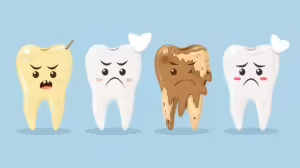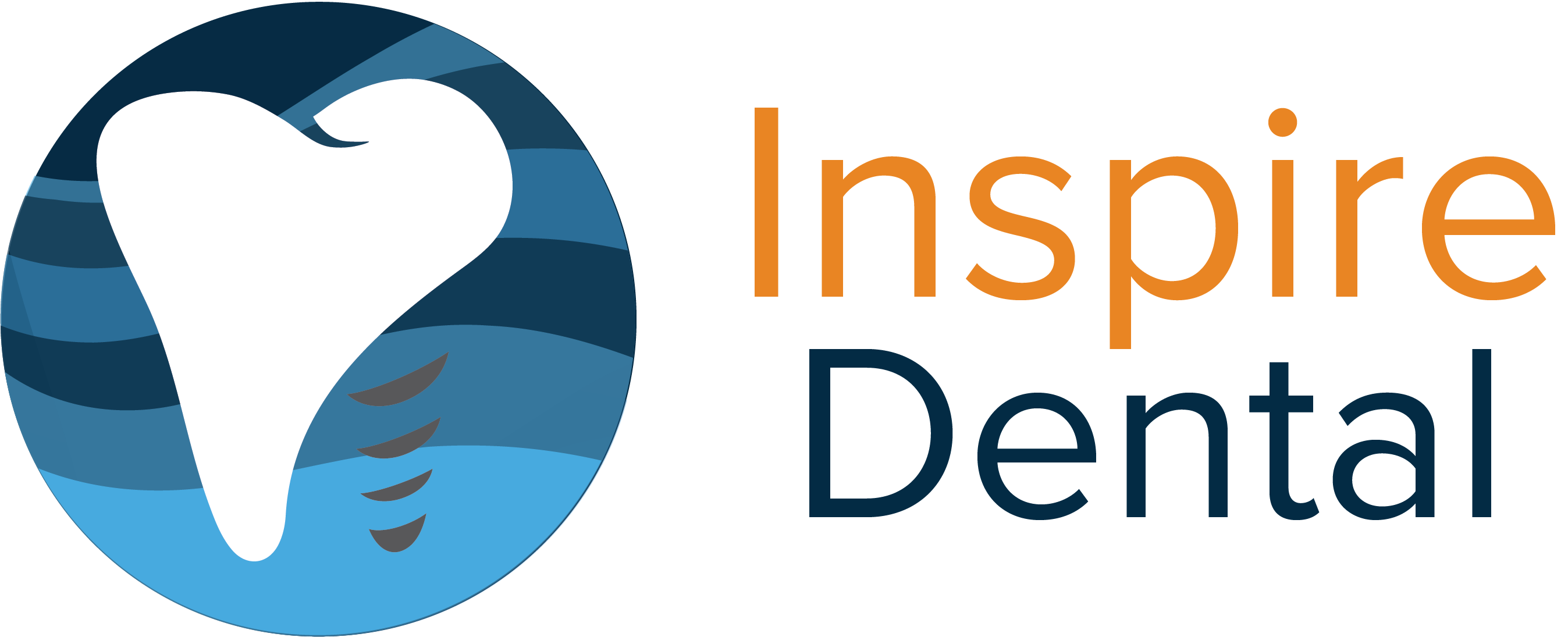Key takeaways:
- Regular brushing and flossing are essential for cavity prevention
- A balanced diet low in sugar helps protect teeth from decay
- Professional dental cleanings and check-ups are crucial for early detection
- Fluoride treatments and dental sealants offer extra protection against cavities
- Prompt treatment of cavities prevents further damage and complications
- Home remedies can complement but not replace professional dental care
- Consistent oral hygiene habits are key to long-term cavity prevention
Cavities are a common dental problem that can be prevented and treated effectively with the right approach. By combining good oral hygiene habits, a healthy diet, and regular dental visits, you can significantly reduce your risk of developing cavities and maintain a healthy smile for years to come.
Understanding Cavity Prevention and Treatment

Cavities, also known as dental caries or tooth decay, are areas of damage on the hard surface of your teeth. They occur when bacteria in your mouth produce acid that erodes tooth enamel. This process can lead to small holes in your teeth, which can grow larger and deeper over time if left untreated.
The formation of cavities is influenced by several factors, including:
- The types and amount of bacteria in your mouth
- The foods and drinks you consume, especially those high in sugar and carbohydrates
- How well do you clean your teeth
- The presence of fluoride in your water and oral care products
- Your overall health and the medications you take
Understanding these factors is the first step in developing an effective strategy for cavity prevention and treatment.
The Importance of Good Oral Hygiene

Good oral hygiene is the foundation of cavity prevention. Brushing your teeth twice a day with fluoride toothpaste is essential for removing plaque and food particles that can lead to tooth decay. Use a soft-bristled toothbrush and brush for at least two minutes each time, making sure to clean all surfaces of your teeth.
Flossing is equally important, as it removes plaque and food particles from between your teeth and along the gum line where your toothbrush can’t reach. Make flossing a daily habit, ideally before bedtime.
Consider using an antimicrobial mouthwash to help reduce bacteria in your mouth. However, remember that mouthwash is not a substitute for brushing and flossing.
Diet and Nutrition for Cavity Prevention
What you eat and drink plays a significant role in cavity prevention. Limit your intake of sugary and starchy foods, as these provide fuel for the bacteria that cause tooth decay. Instead, focus on a balanced diet rich in fruits, vegetables, lean proteins, and whole grains.
Some foods can help protect your teeth from decay. Cheese, for example, contains calcium and phosphates that help remineralize tooth enamel. Crunchy fruits and vegetables like apples and carrots stimulate saliva production, which helps neutralize acids in your mouth.
Drinking water throughout the day, especially after meals, can help wash away food particles and bacteria. If you do consume sugary or acidic foods and drinks, try to do so with meals rather than as snacks throughout the day.
Professional Dental Care and Early Detection
Regular dental check-ups and cleanings are crucial for cavity prevention and early detection. Your dentist can spot early signs of decay and address them before they develop into full-blown cavities. Professional cleanings remove tartar buildup that you can’t remove at home, reducing your risk of cavities and gum disease.
During your dental visits, your dentist may recommend additional preventive measures such as:
- Fluoride treatments to strengthen tooth enamel
- Dental sealants to protect the chewing surfaces of back teeth
- X-rays to detect cavities between teeth or under existing fillings
Don’t skip these appointments, even if you’re not experiencing any dental problems. Prevention is always easier and less expensive than treatment.
Fluoride: Nature’s cavity fighter
Fluoride is a naturally occurring mineral that helps prevent tooth decay by strengthening tooth enamel. It can even reverse the early stages of decay. Most communities in the United States add fluoride to their water supply, which has significantly reduced cavity rates over the past several decades.
In addition to fluoridated water, you can get fluoride from:
- Fluoride toothpaste
- Fluoride mouthwash
- Professional fluoride treatments at your dentist’s office
- Prescription fluoride supplements (for those without access to fluoridated water)
While fluoride is generally safe and effective, it’s important to use it as directed, especially for children who may swallow toothpaste.
Dental sealants: Extra Protection for Cavity-prone Areas
Dental sealants are thin, protective coatings that are applied to the chewing surfaces of back teeth (molars and premolars). These surfaces have deep grooves and pits that can be difficult to clean thoroughly, making them prone to cavities.
Sealants act as a barrier, preventing food particles and bacteria from settling into these hard-to-reach areas. They’re especially beneficial for children and teenagers, who may not have mastered proper brushing techniques yet.
The application of sealants is quick, painless, and can last for several years with proper care. Ask your dentist if sealants are right for you or your children.
Treating Cavities: Options and Procedures
Despite our best efforts, cavities can still occur. The good news is that there are effective treatments available. The specific treatment will depend on the severity of the cavity:
Fillings
For small to medium-sized cavities, dental fillings are the most common treatment. The decayed portion of the tooth is removed, and the space is filled with a material such as composite resin, amalgam, or porcelain. The filling restores the tooth’s shape and function while preventing further decay.
Crowns
For larger cavities or weakened teeth, a crown may be necessary. A crown is a cap that covers the entire visible portion of the tooth, restoring its shape, size, and strength. Crowns can be made from various materials, including porcelain, metal, or a combination of both.
Root canal therapy
If decay has reached the tooth’s pulp (the inner part containing nerves and blood vessels), a root canal may be needed. This procedure involves removing the infected pulp, cleaning the inside of the tooth, and filling it with a special material. A crown is usually placed over the tooth to protect it.
Extraction
In severe cases where the tooth is too damaged to be saved, extraction may be necessary. Your dentist will discuss replacement options such as dental implants or bridges to restore your smile and maintain proper oral function.
Home Remedies and Natural Approaches
While professional dental care is essential, some home remedies and natural approaches may complement your cavity prevention efforts:
- Oil pulling: Swishing coconut oil in your mouth for 15-20 minutes may help reduce bacteria and plaque.
- Green tea: Contains compounds that may help reduce bacterial growth and acid production in the mouth.
- Vitamin D: Helps your body absorb calcium, which is essential for strong teeth.
- Xylitol gum: Chewing sugar-free gum containing xylitol can stimulate saliva production and may help reduce cavity-causing bacteria.
Remember, these methods should not replace regular brushing, flossing, and dental visits. Always consult with your dentist before trying new oral health remedies.
Special Considerations for Children and Seniors
Children and seniors may have unique cavity prevention needs:
For children:
- Start good oral hygiene habits early
- Supervise brushing until they can do it effectively on their own
- Limit sugary snacks and drinks
- Consider dental sealants for permanent molars
For seniors:
- Be aware of dry mouth, which can increase cavity risk
- Clean dentures daily and remove them at night
- Pay extra attention to gum line cavities
- Discuss medication side effects that may affect oral health with your dentist
The Role of Saliva in Cavity Prevention
Saliva plays a crucial role in maintaining oral health and preventing cavities. It helps:
- Wash away food particles and bacteria
- Neutralize acids in the mouth
- Provide minerals that help remineralize tooth enamel
Certain medications and medical conditions can reduce saliva production, increasing cavity risk. If you experience dry mouth, discuss it with your dentist. They may recommend saliva substitutes or other strategies to protect your teeth.
The Impact of Lifestyle Factors on Cavity Risk
Various lifestyle factors can influence your risk of developing cavities:
- Smoking and tobacco use can reduce saliva production and increase bacterial growth
- Alcohol consumption can lead to dry mouth and weaken tooth enamel
- Stress may cause you to neglect oral hygiene or grind your teeth
- Certain medications can affect saliva production or contain sugar
Being aware of these factors can help you take steps to mitigate their impact on your oral health.
The Connection Between Overall Health and Cavity Risk
Your overall health can affect your cavity risk. Conditions such as diabetes, autoimmune disorders, and eating disorders can increase your susceptibility to tooth decay. Maintaining good general health through a balanced diet, regular exercise, and proper management of chronic conditions can contribute to better oral health.
Cavity Prevention for Special Populations
Certain groups may need to take extra precautions to prevent cavities:
Pregnant women
Hormonal changes during pregnancy can increase the risk of gum disease and cavities. Regular dental check-ups and maintaining good oral hygiene are especially important during this time.
People with braces
Braces can make it challenging to clean teeth thoroughly. Using special brushes and flossing tools, along with more frequent dental cleanings, can help prevent cavities.
Athletes
Sports drinks and energy bars, often high in sugar, can increase cavity risk. Rinsing with water after consuming these products and using a mouthguard during contact sports can help protect teeth.
The Economic Impact of Cavity Prevention
Preventing cavities is not only good for your health but also for your wallet. The cost of preventive care is typically much lower than the cost of treating advanced dental problems. Regular check-ups and cleanings can help you avoid expensive procedures down the line.
| Preventive Measure | Average Cost | Potential Savings |
|---|---|---|
| Regular check-ups and cleaning | $200-$300 | Up to $1000+ in avoided treatments |
| Dental sealants | $30-$60 per tooth | Up to $500+ in avoided fillings |
| Fluoride treatment | $20-$50 | Up to $1000+ in avoided root canals |
The Future of Cavity Prevention and Treatment
Research in dental science continues to advance, offering new possibilities for cavity prevention and treatment:
| Emerging Technology | Potential Benefits |
|---|---|
| Bioactive materials | Stimulate natural tooth repair |
| Antimicrobial peptides | Target specific cavity-causing bacteria |
| Gene therapy | Enhance natural defenses against tooth decay |
| Smart toothbrushes | Provide real-time feedback on brushing effectiveness |
While these technologies are promising, they are still in development and not widely available. For now, the best approach to cavity prevention remains a combination of good oral hygiene, a healthy diet, and regular dental care.
Building Lifelong Habits for Cavity Prevention
Preventing cavities is a lifelong commitment. Here are some tips for making good oral health habits stick:
- Make brushing and flossing part of your daily routine
- Keep healthy snacks on hand to avoid reaching for sugary treats
- Set reminders for dental check-ups and cleanings
- Educate your family about the importance of oral health
- Celebrate small victories in your oral health journey
Remember, it’s never too late to start taking better care of your teeth. Even if you’ve had cavities in the past, you can take steps to prevent future ones and maintain a healthy smile for years to come.
By understanding the causes of cavities, implementing effective prevention strategies, and seeking prompt treatment when needed, you can significantly reduce your risk of tooth decay and enjoy better oral health throughout your life. For more information, you can visit our website or contact us.
